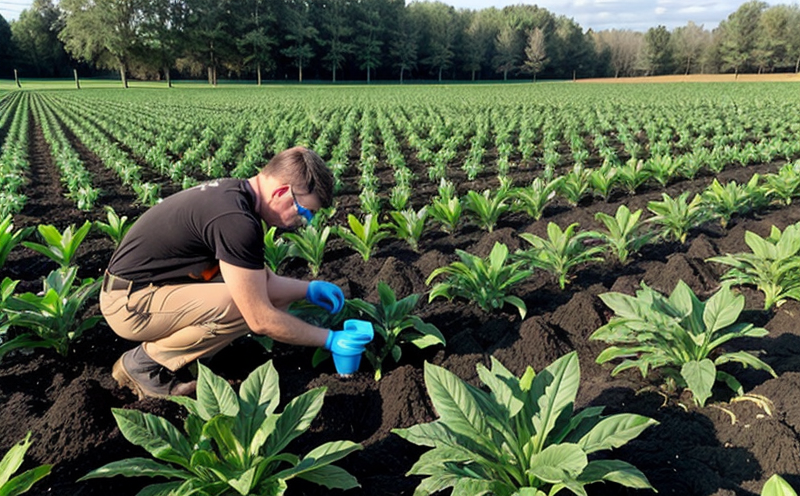Comprehensive Fertilizer Quality & Nutrient Assessment
The Comprehensive Fertilizer Quality & Nutrient Assessment service is designed to ensure that fertilizers meet the highest standards of purity and efficacy. This service is essential for quality managers, compliance officers, R&D engineers, and procurement teams who need to verify the integrity and performance of fertilizers in agricultural applications.
Our laboratory employs a rigorous testing protocol using advanced analytical techniques such as Inductively Coupled Plasma Mass Spectrometry (ICP-MS), Atomic Absorption Spectrophotometry (AAS), and Gas Chromatography-Mass Spectrometry (GC-MS) to assess the quality of fertilizers. This method ensures accurate quantification of key nutrients like nitrogen, phosphorus, potassium, calcium, magnesium, sulfur, and trace elements.
The testing process involves detailed preparation of samples, including sieving, grinding, and digestion if necessary. These steps ensure that the sample is uniform and representative for analysis. Our experts then use state-of-the-art instrumentation to measure nutrient content with precision. The results are compared against international standards such as ISO 17254:2019 for fertilizers.
By providing comprehensive testing, we help our clients maintain compliance with regulatory requirements while ensuring the quality of their products meets market expectations. This service is particularly valuable for companies involved in organic and sustainable farming practices where precise nutrient content is critical for environmental impact and crop health.
Scope and Methodology
| Parameter | Description | |
|---|---|---|
| Nitrogen (N) | Quantified using Dumas combustion method. | |
| Phosphorus (P₂O₅) | Determined by spectrophotometric analysis. | |
| Potassium (K₂O) | Analyzed via flame photometry. | |
| Sulfur (S) | Detected using titrimetric methods. | |
| Calcium (Ca) | Magnesium (Mg) | Determined by atomic absorption spectroscopy. |
The methodology also includes checks for impurities such as heavy metals, salts, and other contaminants which may affect the efficacy of fertilizers. Our laboratory adheres strictly to ISO standards to ensure all tests are conducted accurately and consistently across different batches and types of fertilizers.
Our testing process ensures that every batch of fertilizer undergoes a thorough examination, providing reliable data for quality control and assurance. This service is particularly useful in the context of precision agriculture where small variations in nutrient content can have significant impacts on crop yield and sustainability.
Customer Impact and Satisfaction
- Enhanced confidence in product quality, leading to increased customer satisfaction.
- Improved compliance with international standards, reducing the risk of regulatory non-compliance.
- Precise nutrient content data aiding in better formulation for specific crop needs.
- Supporting sustainable farming practices by ensuring minimal environmental impact.
- Enhanced reputation among stakeholders due to transparent and reliable testing processes.
The results from our Comprehensive Fertilizer Quality & Nutrient Assessment are presented in clear, easy-to-understand reports. These reports include detailed breakdowns of nutrient content, detected impurities, and compliance with relevant standards. This information is invaluable for internal decision-making processes within companies involved in the agricultural sector.
Competitive Advantage and Market Impact
The Comprehensive Fertilizer Quality & Nutrient Assessment service provides a competitive edge by ensuring that our clients stay ahead of regulatory changes and market demands. By offering accurate, reliable data on fertilizer quality, we help companies differentiate themselves in the marketplace.
This service is particularly beneficial for those engaged in research and development (R&D) activities aimed at improving product formulations or exploring new markets. The detailed insights provided by this assessment can lead to innovations that enhance crop productivity while maintaining environmental sustainability.
Furthermore, compliance with international standards not only boosts a company's reputation but also opens doors to export opportunities. This service ensures that fertilizers meet the stringent requirements set by importing countries, thereby facilitating smoother trade operations and increased market share.





